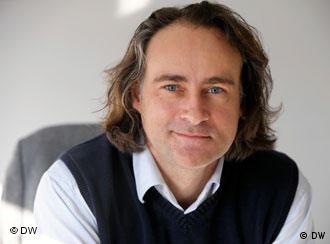今年我的兩位朋友都有相關文章
日本福島海嘯災難一年紀念 / 五尾乘二 張貼於 阿尾的落地窗 - 14 小時以前 明天是日本東北福島災難周年, 對於日本承受如此嚴重的災變衝擊, 身為台灣人也難以心情平靜,我自己看了BBC/CNN 和NHK以及台灣公視的回顧報導 包括生存者的說法
我當然特別重視核能安全
Nuclear Disaster in Japan Was Avoidable
--
今天讀德國之音的這篇

Despite the Fukushima disaster many countries are sticking to nuclear power steadfastly. DW's Alexander Freund says the accident marks a breaking point.
Everyone was certain nothing would be the same after Fukushima. The dramatic pictures in the media of exploding nuclear plants, helpless engineers, evacuated ghost towns. For German Chancellor Angela Merkel, a physicist by training, the events in Fukushima were a turning point. Even in a high-tech country, the risks posed by nuclear power cannot be fully controlled, she declared "Fukushima has changed my attitude to nuclear power," she said, announcing that Germany would cease to use nuclear power by 2022.
This decision can be considered right or wrong depending on one's view of atomic energy. But Germany is the only country to have made it and has met with considerable lack of understanding across the borders.
In Asia, new reactors are being built and the construction of a nuclear power plant was recently approved in the US. So, little seems to have changed since Fukushima after all.
No more excuses
However, what has changed is that there should be no more excuses. The Fukushima disaster was not due to flagrant violations of safety regulations as in Chernobyl. Last year's accident on March 11 shows that not even the third-largest economy in the world was able to prevent a catastrophe disaster, despite wealth, expertise and painstaking safety measures.

Alexander Freund of DW's Asia Desk
There was a somewhat naive belief among many Japanese that politicians and the nuclear lobby - an unsavory combination that turned out to be disastrous - had nuclear power under control, just as fire had been kept under control for thousands of years. Japanese engineering was seen to be a weapon against even the worst earthquakes and tsunamis.
As it turned out, Japan and the world experienced an incredible amount of helplessness and shameful reassurances. An evacuation plan had not even been made for greater Tokyo with its 35 million inhabitants in the event that the wind would not blow the radioactive material into the sea.
No real change
Of course, many of the nightmare scenarios that emerged in the wake of Fukushima turned out to be false. There was no nuclear apocalypse and only a restricted area will be contaminated for a long time. Nor has there been a return to the Stone Age as Japan's nuclear lobby threatened although almost all of Japan's reactors have been shut down for maintenance work.
There will probably be no real change in Japan's energy policy. The island nation has such a shortage of raw materials that it will have to continue to use nuclear power for financial, strategic and environmental reasons.
Nuclear power continues to split public opinion. However, it is not a question of general principle between economic growth and long-term well-being - these are both possible without nuclear power. It is a question of what we are prepared to subject ourselves and the next generation to and of what risks we are willing to take.
Author: Alexander Freund / act
Editor: Sarah Berning
| Japan mourns; grapples with tsunami aftermath Reuters By Yoko Kubota | OFUNATO, Japan (Reuters) - With a moment of silence, prayers and anti-nuclear rallies, Japan marked on Sunday one year since an earthquake and tsunami killed thousands and set off a radiation crisis that shattered public trust in ... See all stories on this topic » | ||
| Prayers, tears as Japan marks 1 year since massive earthquake CNN By the CNN Wire Staff Tokyo (CNN) -- Japan gathered Sunday amid tears, prayers and a moment of silence to mark one year since an earthquake and tsunami killed thousands, and triggered the world's worst nuclear crisis in a quarter century. See all stories on this topic » | ||
| ||
| ||
| ||
| Japan Mourns and Grapples With Tsunami Aftermath CNBC.com With a moment of silence, prayers and anti-nuclear rallies, Japan marked on Sunday one year since an earthquake and tsunami killed thousands and set off a radiation crisis that shattered public trust in atomic power and the nation's leaders. See all stories on this topic » | ||
| ||
| Japan Observes Anniversary of Deadly Quake, Tsunami Voice of America March 11, 2012 Japan Observes Anniversary of Deadly Quake, Tsunami VOA News Japan observed a moment of silence Sunday, to mark the first anniversary of the earthquake and tsunami that struck Japan last year, leading to one of the worst nuclear crises ... See all stories on this topic » | ||
| Japanese pray, hold moment of silence to mark 1 year since quake and tsunami Washington Post TOKYO — Sirens blared, trains stopped and mourners bowed their heads on Sunday as Japan marked the one-year anniversary of a twinned disaster that killed some 19000 and set off a nuclear emergency. At a theater in Tokyo, Japanese Emperor Akihito, ... See all stories on this topic » | ||
| Japan mourns tsunami dead; grapples with aftermath Reuters Sadness mixes with anger among survivors * People disillusioned with leaders, want to move forward * Anti-nuclear protesters urge end to atomic power * PM Noda says Japan will emerge stronger from crisis * Fukushima operator Tepco apologises (Updates ... See all stories on this topic » |
沒有留言:
張貼留言